These Vegan Meringue Cookies are just like the light and fluffy cookies that you know and love, but made with aquafaba to keep them egg free.
Here I am, back with one last sweet treat for your Christmas celebrations. Actually, I don't really consider meringues Christmas cookies exactly, as I am perfectly happy making them at any time during the year.
However, these Vegan Meringue Cookies are so easy to make, they're perfect for last-minute baking!
And because they're vegan, dairy-free, and gluten-free, they'll meet the needs of just about any of your family and friends with allergies or special diets.
Bonus: you can dress them up for the holidays with festive sprinkles or crushed candy canes. They truly are the perfect last-minute addition to your dessert tray!

How do you make vegan meringue cookies?
Now, I know what you're thinking: "Aren't meringues made from egg whites? How can they be vegan?"
Yes - meringues are traditionally made from egg whites, but we can get the same results making them from aquafaba.

What is aquafaba?
Aquafaba is pure magic. If you haven't heard of it or cooked with it yet, it's just the water left over after cooking or canning beans.
My family goes through a decent amount of canned chickpeas. And every time I use a can, I save the liquid from it. I either use it right away to replace egg whites (you can use it in any application where you need whipped egg whites) or I freeze it in an ice cube tray to use later.
I have successfully used aquafaba to make egg-free marshmallow creme, meringue for topping pies, and to shake into cocktails that would traditionally use an egg white to make them extra frothy. The stuff is seriously wonderful! It's vegan, and it eliminates the risk of contracting salmonella if the recipe isn't going to be cooked.
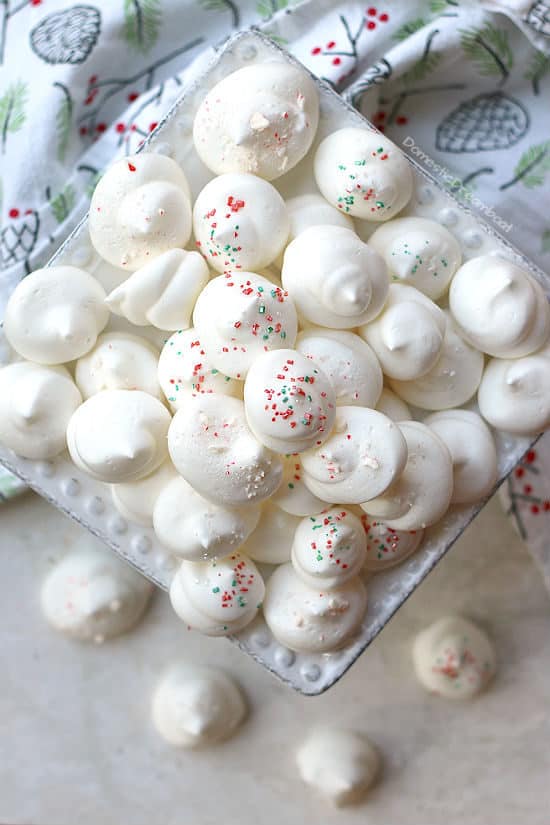
And in case you're wondering, no, these meringues don't end up tasting like chickpeas.
The first time I made them and tasted the uncooked meringue before cooking it, I had some serious doubts. It definitely tasted like chickpeas.
But I went ahead and cooked the cookies, and the chickpea flavor was gone!
It's generally recommended to use no-salt-added chickpeas when you're going to use the aquafaba to make meringue (or any other sweet recipe), but I often use regular, salted chickpeas and the cookies (and everything else I've made) has turned out fine.
Just make sure you don't use canned chickpeas that have any flavoring added to them - your sweet treats may turn out a little less than festive.
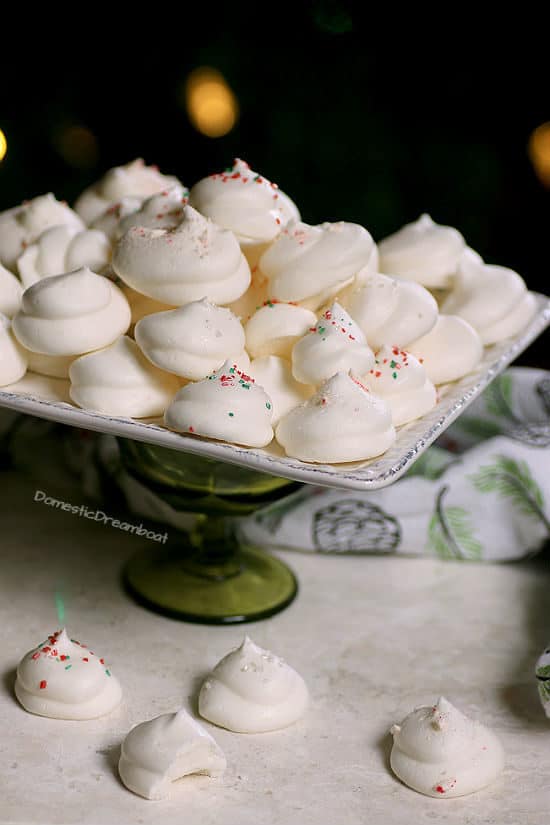
Vegan Meringue Ingredients:
- Liquid from canned chickpeas: Make sure aquafaba is from plain chickpeas, not chickpeas that have any additional spices or seasonings added. Alternatively, if you cook your own chickpeas at home, you can use the water you boiled them in.
- Vanilla extract
- Cream of tartar
- Granulated sugar
- Sprinkles, sanding sugar, crushed candy canes, or any other toppings you might want to decorate your meringues with (optional). You could also mix in a little food coloring if you want your meringues to be a particular color.
Want more aquafaba recipes?
Vegan Meringue Cookies Nutrition Notes:
The nutrition information in the recipe below assumes the use of aquafaba from no salt added chickpeas. If the chickpeas you're using have salt added, there will be a small amount of sodium in your cookies.
The nutrition calculation is based on the recipe making about 50 small meringue cookies and considers one serving 3 of those small cookies.
The nutrition info does not include any added toppings like sprinkles.
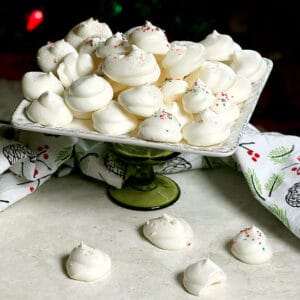
Vegan Meringue Cookies
Equipment
- Parchment paper or silicone baking mats
- Stand Mixer or hand mixer
Ingredients
- ½ cup liquid from canned chickpeas (from a 14 ounce can) see note
- ¼ teaspoon vanilla extract
- ⅛ teaspoon cream of tartar
- ⅓ cup granulated sugar
- sprinkles (optional)
Instructions
- Heat oven to 200°F. Line a two baking sheets with parchment paper or silicone baking mats.
- Add ½ cup liquid from canned chickpeas, ¼ teaspoon vanilla extract, and ⅛ teaspoon cream of tartar to the bowl of a stand mixer (or a large bowl).
- Beat on high speed and slowly add ⅓ cup granulated sugar while the mixer is running. Continue beating until the mixture forms stiff peaks (about 6-7 minutes).
- Pipe or spoon the meringue into small dollops about 1 inch apart onto your prepared baking sheets. Sprinkle gently with sprinkles, if desired.
- Bake for 1.5-2.5 hours. The meringues will not brown, or really look any different when they are done. To tell if they are done, carefully remove one cookie and allow it to cool. It is done when it is crisp and dry all the way through (though some people like them chewy in the center). If you are looking for that chewy center, be sure to start testing them at 1.5 hours. If you like them dry all the way through, or make them large, they will need to cook longer. Store in an airtight container as soon as they are cool. They are best eaten quickly, especially if it's humid. They will begin to soften quickly in the humidity.
Notes
Nutrition
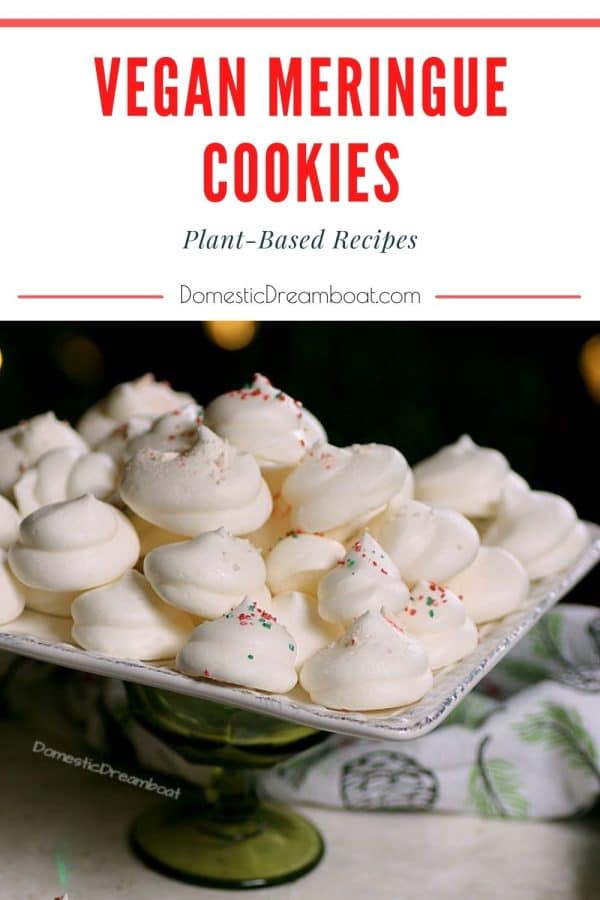

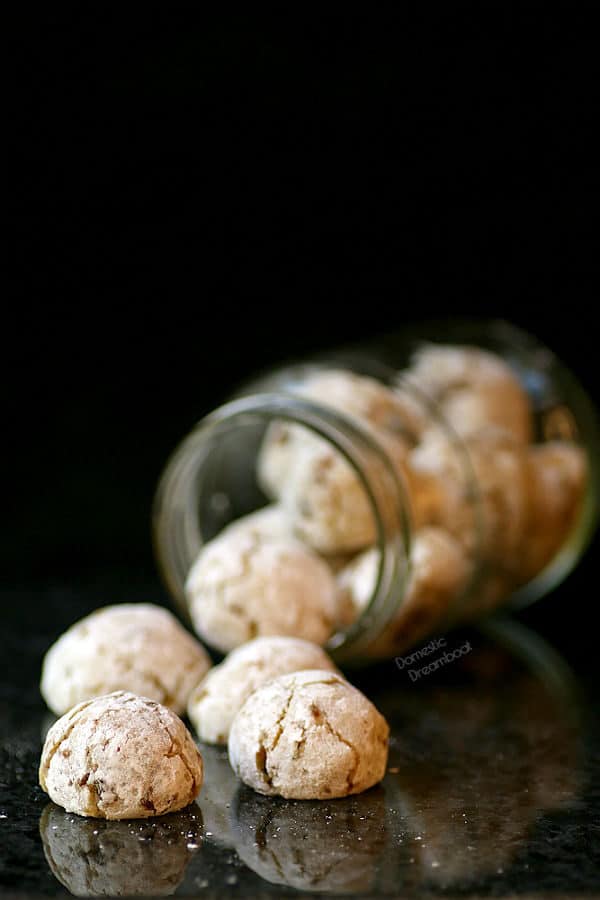

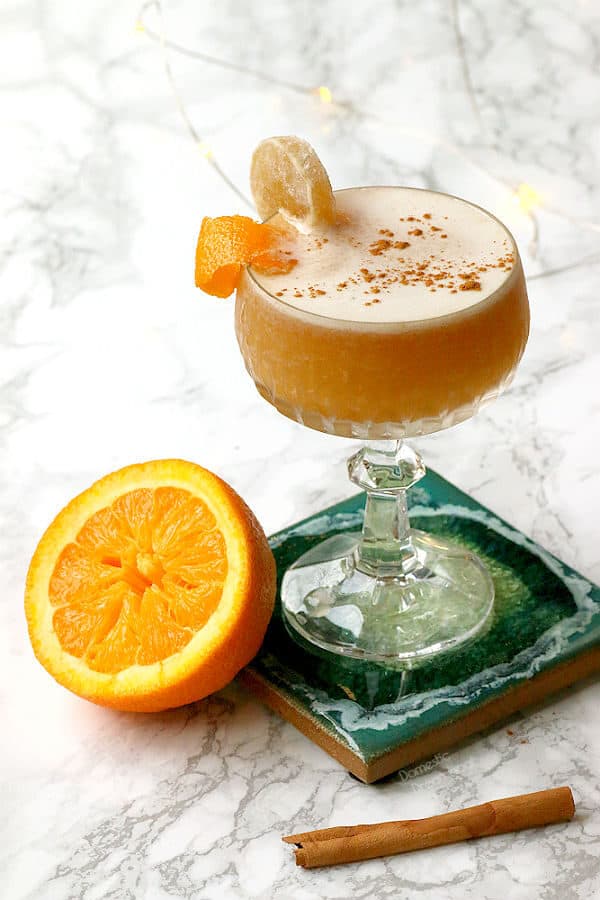




Leave a Reply